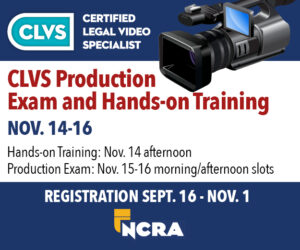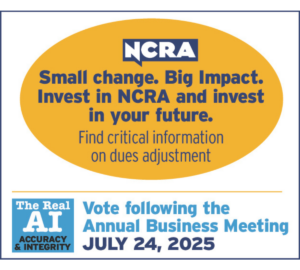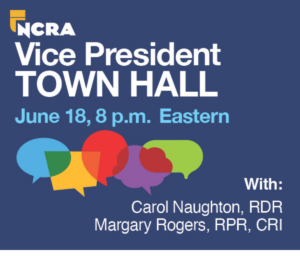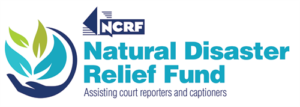By Amy Davidson
We often have candidates asking how to study for an NCRA Written Knowledge Test (WKT). We hope these pointers will be helpful as you prepare for whichever WKT you may be taking.
Here’s the scoop
First, it is important to understand how the WKT is developed. The Job Analysis listed at www.ncra.org/wkt are the blueprints for each of our WKT exams. The Job Analysis lists the domains of knowledge that will be tested for each WKT and further details the types of knowledge under each domain that will be covered.
The RPR, RDR, and CLVS are 100-item, multiple-choice exams, and the CRC is a 50-item multiple-choice exam. The percentages of the domains determine the number of questions in each area on the WKT. For example, on the RPR Job Analysis, the domain breakdown is Technology and Innovation, 43 percent; Industry Practices, 34 percent; and Professionalism and Ethics, 23 percent. This means that there will be 43 questions on technology and innovation, 34 questions on industry practices, and 23 questions on ethics. Although the RPR, RDR, and CLVS exams have an additional 20 questions, only 100 questions are used for the official grade. The 20 additional questions are being vetted for metrics as potential future exam questions that would be graded.
What you need to know
Candidates should have a broad vocabulary and be well-versed in the terminology pertinent to the certification they are pursuing. For example, for those pursuing a reporter certification, legal and medical terms are prevalent, and those in videography should be sure to review the terminology in the CLVS Guidebook and the field in general. Those pursuing the CRC should be familiar with terms in the captioning environment and specifically with any terms covered in the CRC Handbook, the online CRC Mandatory Workshop, and all related handouts.
Candidates should also be very familiar with any professional COPE guidelines associated with their credential and be able to apply the knowledge of those guidelines when responding to questions.
Reporters should be very familiar with:
- NCRA Code of Professional Ethics
- COPE – Advisory Opinions
- COPE – Guidelines for Professional Practice
Captioners should be very familiar with:
Videographers should be very familiar with:
All candidates should be familiar with the rules regarding the appropriate membership status for the credential they hold. Candidates should also be familiar with the Continuing Education requirements for their credential.
RPR and RDR candidates should be familiar with the overall governance of NCRA and familiar with key committees and general information about the National Court Reporters Foundation and its role in supporting the profession.
CLVS candidates should be sure to review material in the CLVS Guidebook including CLVS Standards for Video Depositions, Glossary of Legal Terminology, and Glossary of Video Terminology.
Grading of exams
Candidates receive a preliminary pass/fail upon completion of their WKT. All WKT candidates receive official results via email within two to four weeks of the close of the testing period in which they tested. The official results also provide insight into how a candidate scored on each domain on their exam. Candidates who need to retest should use this feedback to help focus their study preparation for any domains in which their performance was low.
The Certification and Testing team looks forward to seeing your name on our newly certified lists soon!
For registration and testing dates please visit www.ncra.org/WKT.
For questions about the Written Knowledge Test, the Online Skills Tests, or NCRA certifications, please contact the Certification Test Center at testing@ncra.org.
Amy Davidson is NCRA’s Director of Certification and Testing. She can be reached at testing@ncra.org.











